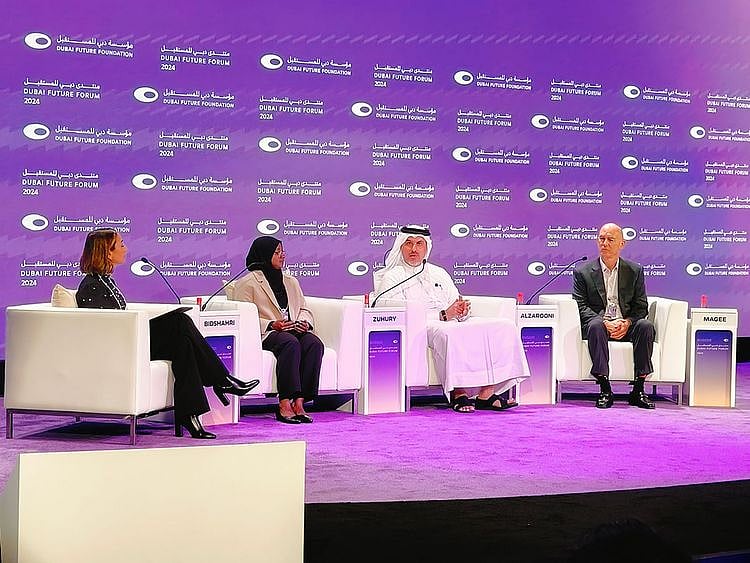Dubai Future Forum explores what schools will be like in the year 2100
Educators and futurists say experiences, not just knowledge, also play a role in learning

Dubai: Educators and futurists deliberated on what an effective school might look like in the year 2100, during the Dubai Future Forum on Wednesday.
Raya Bidshahri, founder and CEO of the School of Humanity, an online high school, highlighted the possibility of a future where AI (artificial intelligence) automates most human tasks, prompting society to reconsider the purpose of education.
“We can’t talk about AI without considering the possibility or scenario of Universal Basic Income with millions of jobs potentially getting automated by AI,” she said, referring to a welfare concept whereby citizens receive a sum of money from the government.
Bidshahri suggested that schools in the future may need to prepare students not only for life on Earth but also for life as “cosmic citizens”.
“It’s also been predicted that by 2100 we will have colonies and habitats on the Moon and Mars. Now imagine the curriculum needed to prepare the next generation to be cosmic citizens and to prepare them for the very first school on Mars.”
She also pointed out that by 2100, advancements in medicine could allow people to live longer than 100 years. With the average person changing careers multiple times throughout their life, the concept of education as a one-time event will shift to lifelong learning.
Hybrid, virtual learning
As technology evolves, learning environments will increasingly be shaped by virtual and augmented reality. Fathmath Zahanath Zuhury, UNICEF Youth Foresight Fellow, shared insights from a study conducted in the Maldives, where young people expressed interest in hybrid models of education.
“They wanted to see hybrid models of classrooms where you can engage with students and teachers. It shows the importance of social connection,” she said.
With island nations like the Maldives facing existential threats from rising sea levels, Zuhury noted that students have already begun envisioning unique solutions.
“Young people saw a future where they have schools underwater. They said they would be learning by using hologram figures and be home schooled. So, these are just the different scenarios young people are already thinking about.”
Offering experiences
Dr Adil Alzarooni, founder of Citizens School in Dubai, stressed that schools must prepare students for a rapidly changing world through distinguished experiences.
“Schools, moving forward, will always have more than one experience to train for, and that is to cover as many educational experiences as possible,” he said while referring to the entrepreneurship programme offered at his institution, which goes beyond traditional learning.
Dr Alzarooni also noted that, in the near future, the emphasis on school brands and curricula will diminish, giving way to a preference for institutions offering rich, experience-based education.
Ethical education
As technologies like AI rapidly expand, the ethical implications of these advancements will become central to the future of education. Students will need to understand the impact of technology on society and the environment, and how to use these technologies responsibly.
Dr Mike Magee, president, Minerva University, US, said that universities in the future will not only focus on knowledge and career skills but also on nurturing students’ empathy and their ability to understand others.
“With AI in particular, there is a world in which this new technology is going to be used in very dangerous ways,” he said and stressed that educators will need to teach students how to collaborate across cultural and technological divides and ensure that the technology they create benefits humanity as a whole.
Sign up for the Daily Briefing
Get the latest news and updates straight to your inbox
Network Links
GN StoreDownload our app
© Al Nisr Publishing LLC 2026. All rights reserved.